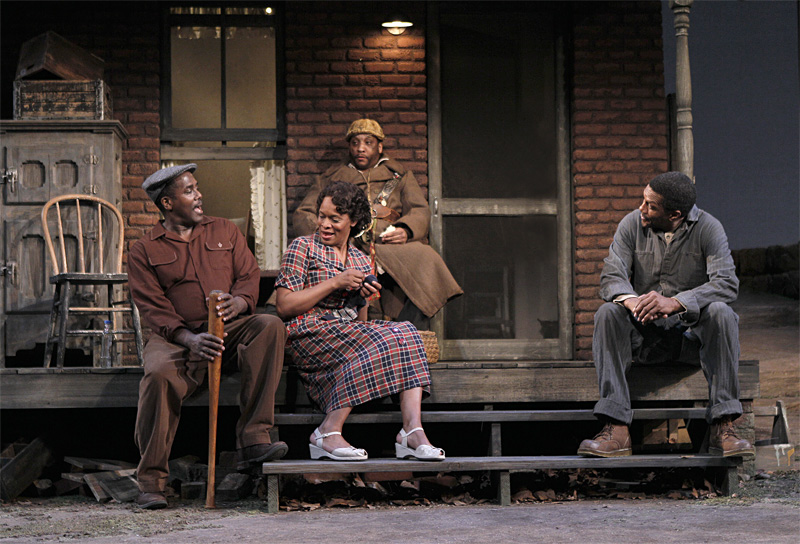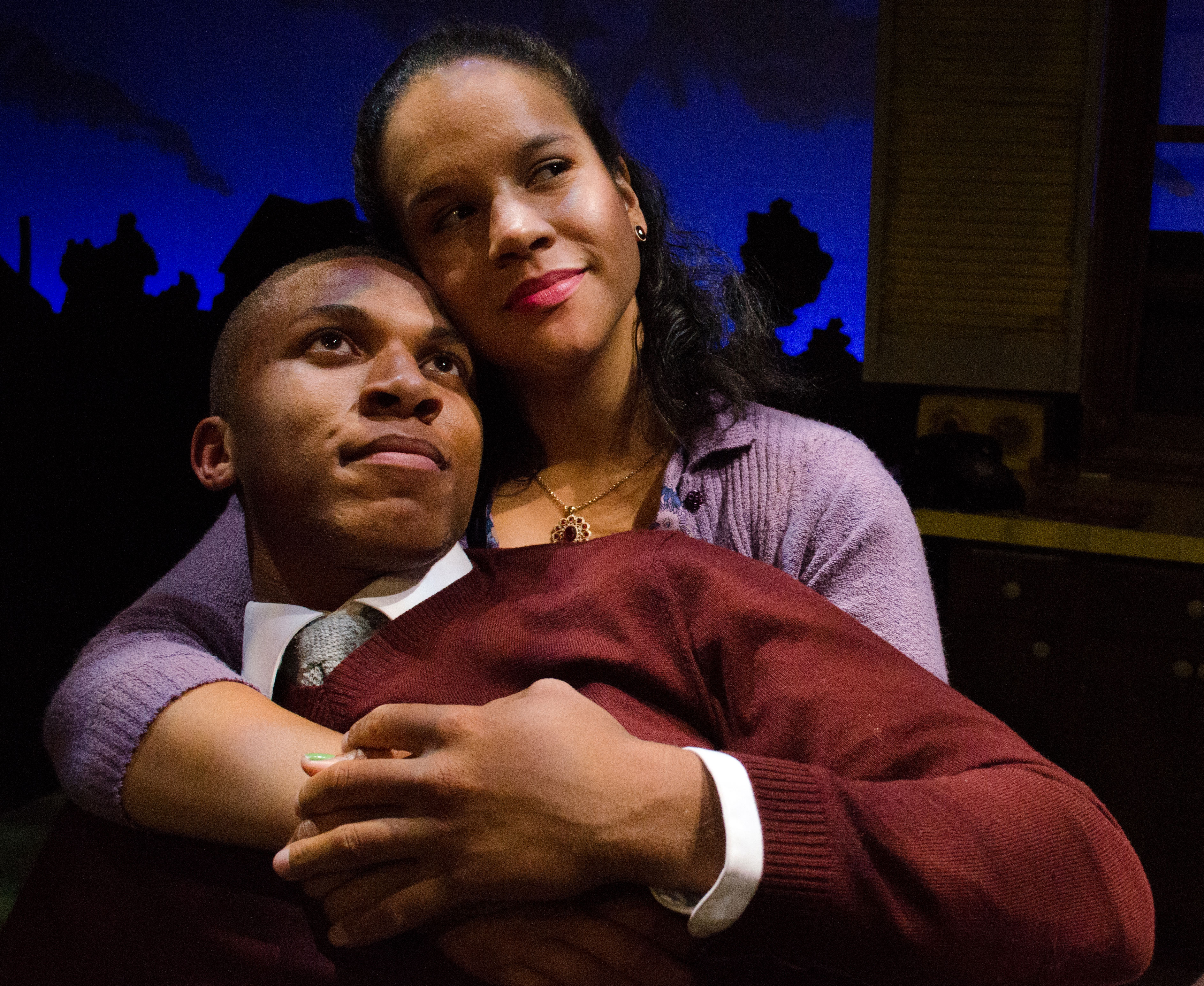You know how some people can just suck all the air out of a room? That’s kinda how it felt at the opening night of Fences. The cast was superb. The production was subtly detailed and evocative of the ’50s black experience. The blues standards used to punctuate the scene changes were beyond reproach.
So what’s wrong? Well, the late August Wilson’s play is what’s wrong. But let’s get to that in a moment.
Before the lights even came up on the Rep stage, the playwright and the theater were feted with a proclamation from City Hall, where the mayor’s proxy referred to Wilson as “the American Shakespeare.” Having staged every one of Wilson’s works, the Rep is now circling back to where it began in 1986, with Fences.The play went on to receive the Pulitzer Prize for drama and earned James Earl Jones a best-actor Tony. Next week it’s returning to Broadway, this time with Denzel Washington.
Bottom line: This play and its author are doctor-recommended, safety-inspected, focus group-approved, and validated by everyone from Fruit of the Loom to NORAD. You, humble patron, damned well better dig it.
And I was prepared to. But no amount of immutable love and respect for the subject matter changes my ability to recognize ham-fisted and overwrought dramatics when I see them. Oliver Stone is a dramatist cut from the same cloth. He’s a brilliant filmmaker, but his scripts transparently smack of crusade and diatribe. His characters are loquacious windbags, and he’s incapable of writing dialogue for women that doesn’t sound as if it came from the pages of either Cosmo or Penthouse.
So you can see why I don’t like Fences either.
The play concerns Pittsburgh’s Maxson family, led by patriarch Troy (brilliantly played by James A. Williams), and their struggle to heft their social status a few more notches above the poverty line. Troy is a former baseball player who believes he’d have been one of the greats had race not kept him from playing in the majors (he was too old by the time Jackie Robinson broke the color barrier). As the play begins, he’s awaiting a response to his request that blacks be allowed to drive the garbage trucks he works on, rather than just haul the refuse.
But if Troy’s brave and industrious, he’s also a drunk, a bully, and an opportunist. He’s a man who lost his soul in childhood when his own daddy beat it out of him. Since then, he’s fathered a son out of wedlock, cheated on his devoted wife of 18 years to produce a daughter, and done whatever he could to break the spirit of his youngest son, simply out of unyielding ego. He believes that making it a practical impossibility for his son to play football, and refusing even to meet a recruiter who wants the boy in college, is somehow preparing him for “the real world.” When Troy’s own brother Gabriel(Craig Alan Edwards) returns from World War II with a plate in his head and very little sanity,Troy uses Gabe’s compensation from the military to build his family a house.
As I understand it, Fences intends to chronicle one man’s response to the impotence he feels in a racist society. Troy Maxson’s reaction is to control as much of whatever he can claim dominion over—his job duties, his wife, his son, and the finances of his demented brother. As Wilson depicts the character, it would seem we’re supposed to be in the presence of a brute nobility. Here’s a man, after all, who goes all Uncle Remus on us with tales of wrestling Death to a draw and meeting the Devil, who offers a houseful of furniture for a mere $10 a month, to be paid in perpetuity. But, sports glory and rhetorical flourishes aside, Maxson seems indistinguishable from any dime-store sadist.
While tender, joyous, and savage moments are provided by every member of the supporting cast, they’re all satellites hovering around Williams’ portrayal of Maxson. And since Troy never cracks and never has a moment’s hesitation about his right to rule everyone in his orbit, it’s Williams’ show. He is stunning. He has his teeth so deeply into this character that he’ll be years in shaking it, and audiences will be remembering it for seasons to come.
So there’s much here worth seeing. Williams and his cadre of actors do the material better than it’s written. Director Timothy Bond presents it all in unadorned near-documentary fashion, and each of the technical aspects is placed with circuit-board precision. But deifying a demagogue, even one near the bottom of the social scale, doesn’t do much to uplift a people or their cause. For me, that makes Fences neither entertaining nor edifying.
Of course, Oliver Stone could see it and not want to change a thing.








